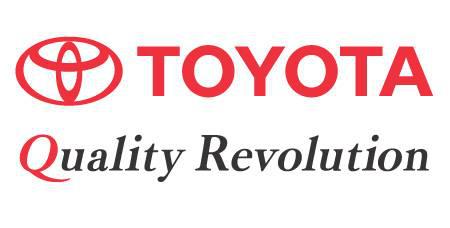Japanese car maker Toyota is considered to be one of best car companies when it comes to manufacturing solid vehicles. The multinational company maintains a workforce of over 3 lakh people, spread over different parts of the globe. According to reports, the company was the largest automobile manufacturer by production in 2012 while at present, it is the 13th largest company in the world by revenue. Over the years, the company has adopted several manufacturing principles but the stand out philosophy has been 'lean manufacturing'.
Lean manufacturing or lean production is a trade practice in which the expenditure incurred on any resource for attaining a particular goal, which is not valuable for the end customer is subject to elimination. Under this philosophy, the main aim to produce a product should be subject to perspective of the customer who consumes it. Thus, in manufacturing context, the term 'Lean' implies to a business entity, which incorporates specialised machinery and equipment in manufacturing processes to optimise time, human resources and productivity, thereby improving the end quality of the product. The thing common about Toyota and Lean philosophy is that the car maker follows the same in the production system. Called as Toyota Production System, the company intends to thrive upon a production system in which complete elimination of all waste is done through highly efficient methods.
Production system of this firm had evolved many years ago with the use of trial and error method to build an efficiency based concept developed by Kiichiro Toyoda, the founder of Toyota Motor Corporation. Toyota claims that this production system was established after continuously making improvements to achieve the goal of manufacturing cars in the quickest and most efficient way possible. Based on concepts of 'jidoka' and 'Just-in-Time', the Toyota Production System was derived to efficiently and easily produce vehicles that have a high satisfaction rate among customers.
In the first concept called as 'jidoka', Toyota mainly relies on the principle that quality must be first preference during manufacturing process. All this means is that when a problem occurs, the machinery equipment stops immediately, which helps in preventing defective products from making their way in the vehicle. Once a defective part is discovered, the affected machine line automatically stops after which the operators halts the production process. As a result of this, products that only pass the quality standards make it to the production line. Whenever a machine stops automatically, the problem is communicated to the operator through the display board after which the problem gets resolved quickly.
The second, known as 'Just-in-Time', produces only what is needed, when it is needed and in the right amount. The basic crux of the concept is achieving higher levels of productivity in the desired amount of time. This phenomenon focusses on producing quality vehicles minimising the waste, inconsistency and unreasonable requirements of the production line. As soon as a vehicle is ordered by the customer, the company makes sure that it is delivered duly on time by adhering to the 'Just-in-Time' concept. After a vehicle order is received, a production instruction gets issued right away for the beginning of the manufacturing process. Furthermore, the concept also outlays on the fact that the assembly line must be stocked with the required number of parts to make any type of ordered vehicle.
It is being said that Toyota first shared this production philosophy with its parts suppliers back in 1990's after which the concept gained prominence thereby generating a huge interest among other organisations. Later on, Toyota began offering methodology instructions to others in which it helped in increasing their efficiency without compromising on the quality. Examples of Toyota Production System being followed in other organisations are many ranging from food and supplies, charity organisations and engineering companies.





























